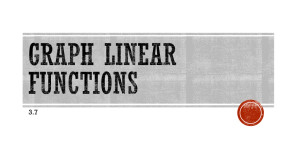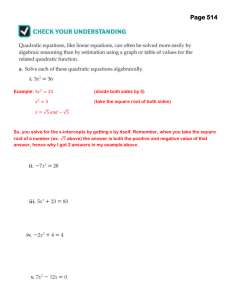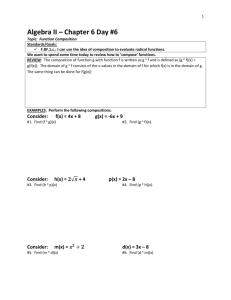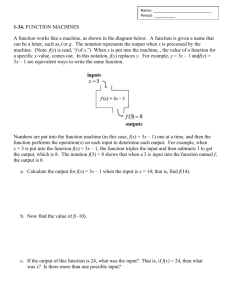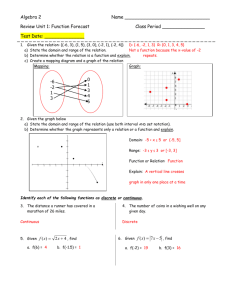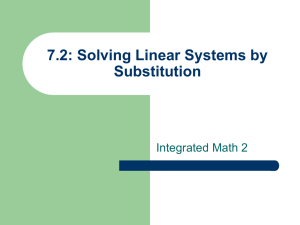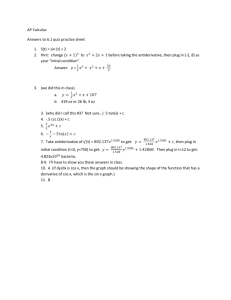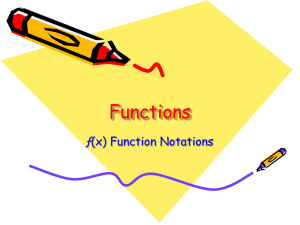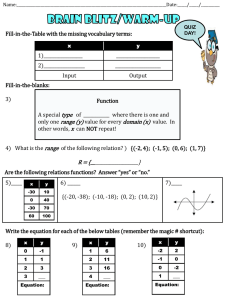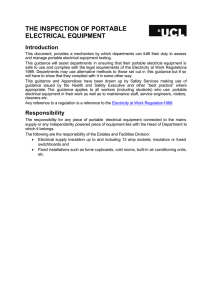Slide 1 - Images
advertisement
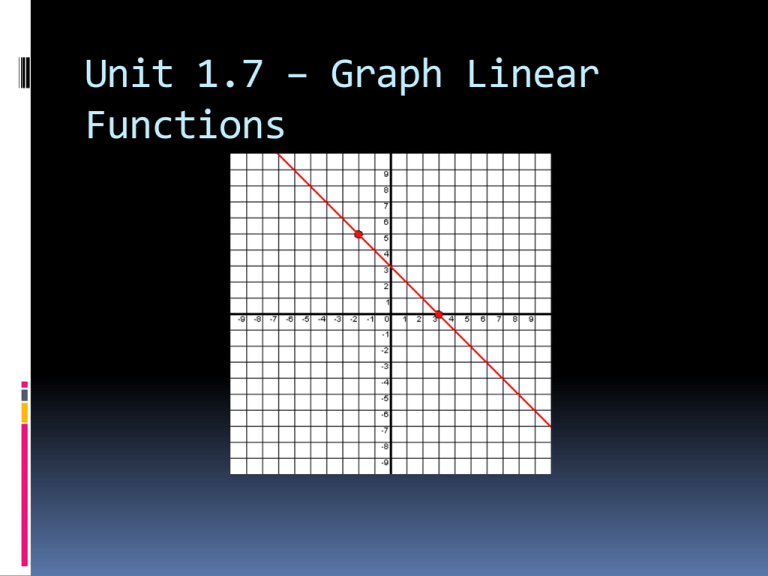
Unit 1.7 – Graph Linear Functions Unit 1 – Algebra: Linear Functions 1.7 – Graph Linear Functions Georgia Performance Standard: MM1A1a – Represent functions using function notation. MM1A1b – Graph the basic function f(x) = xn MM1A1c – Graph transformations of basic functions including vertical shifts, stretches, and shrinks, as well as reflections across the x and yaxes. Vocabulary Function Notation f(x) = mx + b Family of functions Is a group of functions with similar characteristics Parent linear function Most basic linear function in the family of all linear functions What is a function? So think of…… f(x) = A machine! When you plug in an x-value, you will get out an f(x)-value. Input Output So what do we do with a function? A function has to meet one requirement: Every x-value you plug into it has to produce exactly one output. In other words, if you plug x = 1 into a function, you’ll never get two different answers. Example: What is the value of the function f(x) = -4x -3 when x = -2? Steps to Solve: Write original function Substitute -2 for x Simplify f(x) = -4x-3 f(-2)= 4(-2)-3 =-3 What if you already know f(x)? Plug it into the equation and solve! Example: For the function f(x) = -4x + 2, find the value of x so that f(x) = -12 Graphing continued… How do we graph a function? Same steps as before Find b & m What is f(x) = x?? And what can we tell from it? Shifts (Stretch & Shrink) Parallel & Perpendicular Unit 1.8 Unit 1 – Algebra: Linear Functions 1.8 – Predict with Linear Models Georgia Performance Standard: MM1A1d- Investigate and explain the characteristics of a function: domain, range, zeros, intercepts, intervals of increase and decrease, maximum and minimum values, and end behavior. Vocabulary Best-fitting line: The line that most closely follows a trend in data Zero of a function: y= f(x) is an x-value for which f(x) = 0
